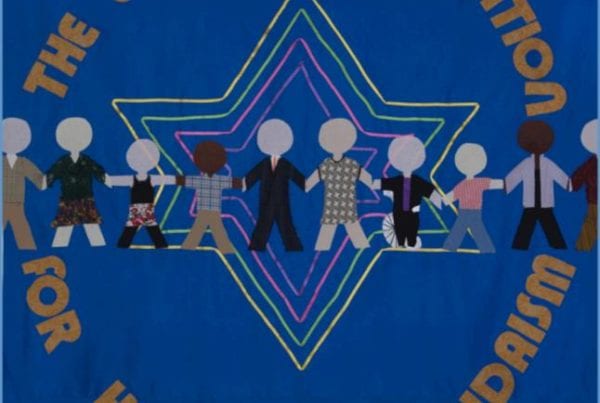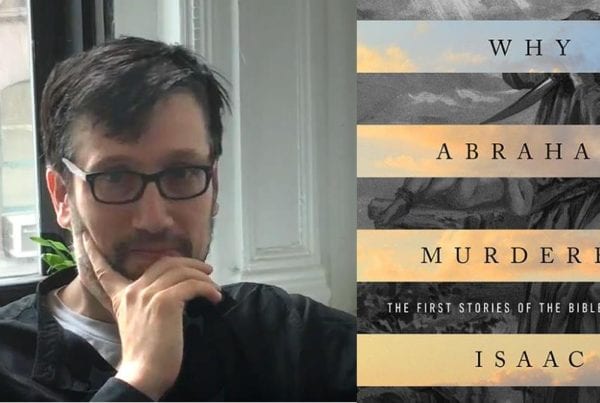Rosh Hashanah 2014
Rabbi Peter H. Schweitzer
This past May I made a call to a well-known chain store that specializes in houseware and furniture. I had read about a particular product on-line but I wanted some more information.
I’m guessing that many of the people in this room probably first read about us on-line too. And you found us not through divine intervention but through google-intervention.
Presumably, our message appealed to you but you may have also wanted more information before coming here today or considering membership. Probably some of you talked to Amy Stein in the office or Isabel Kaplan about bar and bat mitzvah or Susan Ryan about KidSchool. You might have even gotten a callback from me.
When I made my phone call I got a familiar recording: “Thank you for calling Crate and Barrel. To place an order or to talk to customer service, please touch one.”
I was also advised that the “call may be monitored or recorded for quality assurance.”
That, I can assure you, doesn’t happen here. Not only are our calls unmonitored but our High Holidays services will not be monitored either by an eavesdropping deity. We’re on our own.
And then I was given the dreaded update: “Due to unusual call traffic, your call will be answered in approximately ….. 40 seconds!”
Really! I have to wait 40 seconds! Now I had to make a decision. Should I remain on the phone or hang up and call back again when the wait time was down to only 20 seconds?
Seriously, that’s exactly what I heard on the Crate and Barrel call and I thought, why bother even telling me. Two minutes, three minutes, that I want to know. And especially if it will be more than ten minutes, when I switch over to speaker phone and wait for someone from some remote office in Texas or Colorado or maybe India to finally pick up and I can try to get some other work done while I’m waiting.
Now I can assure you that you won’t ever get a message like that on our City Congregation line. If Amy is in the office you might not have any wait time. But if she’s on the phone or working from home that day or it is after hours you’ll get a recording of our upcoming activities and then be asked to leave your name and number so we can call you back. We try to do that sooner than later – we are, after all, a service organization, and giving good service means responding in a timely fashion – but I also know it doesn’t always work out that way.
Which can be very frustrating. And not good for business, especially the kind we’re in, which is about making connections, building relationships and responding to needs.
These days we are used to rapid-fire speed and instant access. We want our web pages to reload instantaneously. We want our text messages to be responded to in the next second. We want our calls to be answered immediately.
But that’s not how it works. Sometimes there’s no one on the other end of the line. Or we have terrible wifi access. Or we are given a choice of buttons to push and if we impatiently try to skip the full message and push “0” for customer service, the system often loops us around to the beginning and we have to hear all the choices again until we are allowed access to a real person.
In the case of our doctors, we often don’t hear from them for hours. Meanwhile, we are left to endure suffering and worries until it is convenient for them to call us back. Of course, we could heed the instruction on their voice mail – If this a medical emergency, please call 911 – and then wait for an ambulance to take us to an emergency room where we can plan on waiting some more.
One of the key challenges of childhood, that we seem to unlearn as adults, is mastering the challenge of delayed gratification. That our parents will not appear miraculously the moment we call out for them. Or, flash forward, that our kids will not stop what they’re doing and show up just because we call for them. Instead, we need to learn about patience and being able to downgrade our urgent needs to tolerate the uncertainly and anxiety of waiting.
If my friend doesn’t call me back right away does that mean she doesn’t like me anymore? Did the waiter forget my dinner? Did he even place our order? Why isn’t the nurse coming when I push the call button? And why didn’t anybody call me back from the City Congregation? Don’t they want people to attend services? To become new members? To attend High Holiday services where I can set aside some valuable time to think about the very pace and passage of time?
But maybe impatience is a good thing too, or all in good measure.
How long can we be patient about addressing the multitude of social and global problems that we enumerate each year at our Seders as contemporary plagues? Like hunger and poverty and the inequities in our economic system? Like not making it possible to earn a living wage or trapping workers in jobs they can’t pay their way out of? Like sexism and homophobia? Like racism and discrimination? Like inadequate gun laws and a culture of violence? Like the array of catastrophic events that are being unleashed by unrestrained climate change?
How long can we “kick the issue down the road” and let the next generation worry about dire, systemic problems? This is not being responsible nor forward-thinking.
You probably know the story about an old man who was planting seeds for a tree. A stranger walked by and asked him about it. When will it bear fruit? Not for many years. But you won’t be alive to enjoy the pleasures? Probably not, but I plant this tree for my children and their children and their children’s children. If I don’t do it now, there won’t be any fruit for them later.
As one young woman who attended the recent Climate March said, “I am that grandchild.” The time is already here.
When the Nazis came too power in the 1930s who had a clue how dire it was going to be? Even those who had the foresight to get out early had no idea what they were avoiding. How many families kept thinking, it will blow over, this can’t last? Why didn’t they heed the warning signs? When does waiting too long become too late?
One sign I saw at the Climate March read “The Dinosaurs didn’t see it coming, either.” But we do. We know better.
Henry Paulson, former secretary of the Treasury, wrote an article for the Sunday News of the Week section back in June that was entitled “The Coming Climate Crash.” The first sentence, in a nod to Ecclesiastes, reads, “There is a time for weighing evidence and a time for acting.” “The warning signs are clear,” he writes, “and growing more urgent as the risks go unchecked.”
Others observers are even more gloomy. You can read the same thing in countless articles. “Climate change,” writes one, “is not an event in our children’s future. It is bearing down upon you now. And there is nothing you – or anyone else – can do to prevent the hit.” Sea levels are on the rise, crop losses will increase, cataclysmic weather will occur much more frequently. These changes, we are told, are already baked in, caused by CO2 that “has spewed into the air long ago.”
Climatic upheaval is no longer an if but a when. Reducing carbon emissions now is about helping prevent even more serious damage 50, 75 and 100 years from today. When we won’t be around, but our kids and grandchildren will.
There are no longer any quick solutions to turn things around. Instead, the challenge is how to strategize to prepare for what is coming.
The key word now is adaptation. How do we plan ahead. How do we anticipate change and prepare for it.
Which brings me, finally, to a story about a town that was nestled in a deep valley. Storm clouds were massing, the skies were darkening. They were told that torrential rains were coming. That a great flood would certainly inundate the town. Everyone would perish. Seeking high ground was no longer an option. Nor was evacuation, which had it been possible, would have defeated the purpose of the story.
Instead, it was time to prepare for the end. So all the different religious groups gathered up their members to console and comfort each other. One group said psalms. Another confessed their sins. A third sat there in silence. And then there were the Jews.
They too gathered, as we do today. Only their rabbi was different, as is this one. And he said, “So the rains are coming, it’s going to flood, but this is no time for panic. No time for despair. This is time for adaptation, which we’re good at. It is now time to learn how to breathe underwater.
Or, if that task is a bit beyond our reach then to find real viable solutions. Either way, the time is urgent. Let us hearken to the words of Rabbi Hillel who said, If not now, when?
Let us make this new year a year of patience, when patience is called for, a year of impatience when urgency is demanded, a year of action, not just words, a year of purpose and fulfillment. And, if we can add to all of that, a good dose of sweetness and throw in some laughter, that will be very good.
Shana Tova – Happy New Year.


